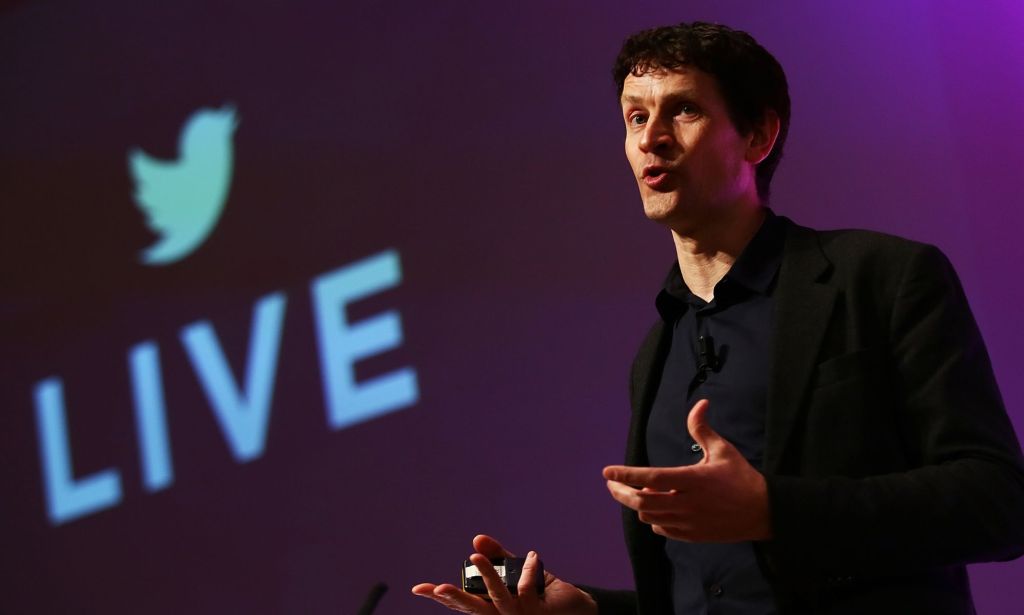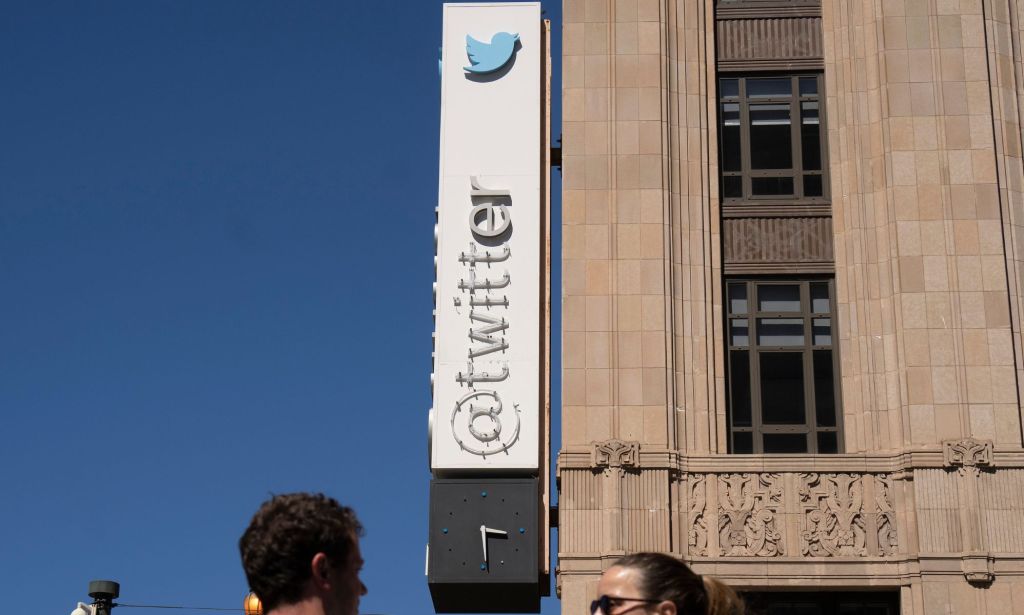To say that Elon Musk’s rebrand of Twitter to the curiously-named ‘X’ has been the subject of a massive, toxic debate on the platform would be something of an understatement.
Since making the move from the iconic blue bird to the black and white capital ‘X’ in July, the revamped theme of the social media giant has been called everything from “a metalcore band teasing their next single” to a “teenage male deodorant”.
Musk, and his team, have promised to uphold what Musk believes to be freedom of speech – despite banning several prominent journalists in December 2022 – and to allow users to vote on major policy decisions by poll. The Tesla boss has also vowed to turn X Corp into a “digital town square where matters vital to the future of humanity are debated” – unless, of course, you don’t pay to have an X Blue subscription.
But while some business experts remain optimistic about the future of X, a former Twitter vice president-turned-author tells PinkNews that he believes the rebrand is not just a “total car crash,” but one of the most “ill thought out” transitions in marketing history, made by a a man who he believes is “impetuous” and “narcissistic.”
Bruce Daisley says he believes Twitter, now named X Corp, originally had the “holy grail for brands” and that the decision to transition to something that he said “makes so little sense” is ludicruous.
“It had entered the language – it had a noun, a verb, it had transcended into everyday discourse,” Daisley says.
“Is Musk expecting that news broadcasts will say that someone sent an X on X?”
Daily claims he was told by “multiple Twitter employees” that the firms nominal CEO, Linda Yaccarino, implored Musk not to go through with it.
PinkNews has asked X for comment on this claim, but they have yet to respond. In the early months of Musk’s ownership, journalist enquiries were met simply with a poop emoji auto response – but this approach to questions has now seemingly been scrapped.
“The decision came, like so many things Musk does at the firm, late night at a weekend,” Daily alleged.
“A lot of his decisions come like this, to the extent that a few unattached employees have taken up former meeting rooms as bedrooms and they stay on-site at the weekend waiting for the billionaire to call late-night gatherings.”

Discussions about the rebrand have become an interesting representation of the public’s view on Elon Musk’s competence as a business leader.
Since buying Twitter in 2022, Musk’s handling of the platform has not only deeply affected its reputation, but the integrity of his other companies.
Once the richest man in the world, Musk was forced to drop almost $4 billion of Tesla stock after completing the acquisition, while countless Twitter employee layoffs early into his reign signalled a grim road ahead for the platform.
A recent YouGov poll reveals that, in the months that followed Musk’s acquisition, unfavourable sentiment towards the platform has skyrocketed. In the UK, around 54 per cent of Twitter users view the platform negatively, while 48 per cent of its global users feel similarly.
The decline in both Musk’s and X Corp’s respective reputations has even jumpstarted a conspiracy theory that the CEO is purposefully trying to destroy the platform – a line of thinking parodied in a November edition of Politico’s Declassified.
For Daisley, this theory is built upon the fanciful idea that Musk is as smart as his supporters believe he is.
“There is no masterplan,” he says. “The guy doesn’t know what he’ll be doing tomorrow.
“Take a look at his proposed cage scrap with Zuckerberg. Lots of late-night noise saying how big and strong he is, and then in the daytime he’s nowhere to be found.
“Yes, he’s certainly making life hard for people who irritate his thin skin, but I don’t think there’s anything like a plan to this. It’s whimsy and knee-jerk reaction, we project too much competence onto him if we think he’s got a plan.”
Is the rebranding fuelled by ‘Musk’s ego’?
Musk’s sweeping changes have also been disastrous for advertiser retention. Corporations that hadn’t already bailed after Musk’s acquisition are showing a reluctance to spend money on the platform following the shaky launch of X – which included a failed attempt to replace the Twitter office’s sign without proper permits.
But while watching a billionaire, who once spent his Christmas posting alt-right dog whistles, fail to run a social media site is incredibly satisfying for some, Outversing joint CEO Marty Davies isn’t ready to chalk it up to Musk’s abrasiveness alone.

“To read the re-branding exercise as one purely driven by Elon Musk’s ego would be misguided,” they say.
“My view is that the re-branding is an attempt to distract from the fact that advertisers left the platform because of its content policy.“
Major content moderation policy changes, which Davies says have “regressed” to making “deadnaming and misgendering permissible”, and include reinstating accounts that were banned for hate speech, have become a huge reason for brands bailing from the platform.
Additionally, the Center for Countering Digital Hate reported in June that 99 per cent of hate speech spread by X Blue accounts – premium members that buy verified tags – were not acted upon by management.
“We know X Corp has been seeking a re-consideration from advertisers – that’s been clear since Linda Yaccarino was installed as CEO in June along with promises of new ad and content formats,” Davies continues.
“X Corp sent an email to advertisers and their agencies explaining the new branding saying that the platform has ‘a new standard of brand adjacency protections, with more to come’.
“This is seemingly in response to brands’ desire not to appear next to hate content.“
Davies adds that in the same email, X Corp seniors mentioned that content creators, which it describes as “the lifeblood of social,” could now earn money from videos uploaded to X.
“This means brands advertising on the platform are now filling the pockets of creators like infamous misogynist Andrew Tate.”
Tate has been using the platform to push his business course “Hustler’s University,” which has been branded as a scam by several pundits and experts.
For Davies and other industry experts, the issue with the rebranding isn’t so much its failure, but its representation of the brand’s serious problem with hate speech.
“If X Corp are serious about a reconsideration from advertisers, we’d ask their leadership to get serious about tackling the transphobia, homophobia, interphobia and acephobia on their platform,” Davies said.
“As LGBTQIA+ members of that advertiser and agency community, Outvertising are uniquely placed to help navigate here. We’re always open to frank and collaborative conversations with platforms and publishers who are equally dedicated to making progress in this area. That invite extends to X Corp.”
Branding experts torn between ‘vagueness’ or possibility
Independent creative agency Forpeople’s creative director, James Addison, also tells PinkNews that he believes the rebrand to either be a “genius move or a disaster”.
In Addison’s opinion, the logo either implies that “anything is possible”, or suffers from a “vagueness” that has prompted the backlash.
He notes Elon Musk’s announcement in July, in which the Tesla CEO said he wanted X to become an “everything app” that would utilise financial features and what the X Corp owner described as “comprehensive communications”.
“A new name would therefore be advantageous to disassociate itself from a pure social media focus and embrace the idea of an everything app,” Addison says. “However, it’s flawed with cultural nuance and symbolism – a close icon, kisses, danger … pirates?
“Musk’s maverick approach to branding has certainly ruffled feathers across the industry,” he continues.
“Sure, it’s simple and easy to remember but it’s only because of Musk’s colossal personal brand that he can blast our retinas with this symbol and create recognition. Other companies would struggle to have the same impact.
“As brand theatre, this is certainly fascinating to observe and the design community is watching with great interest.”
PinkNews has contacted X Corp’s press office for comment.
